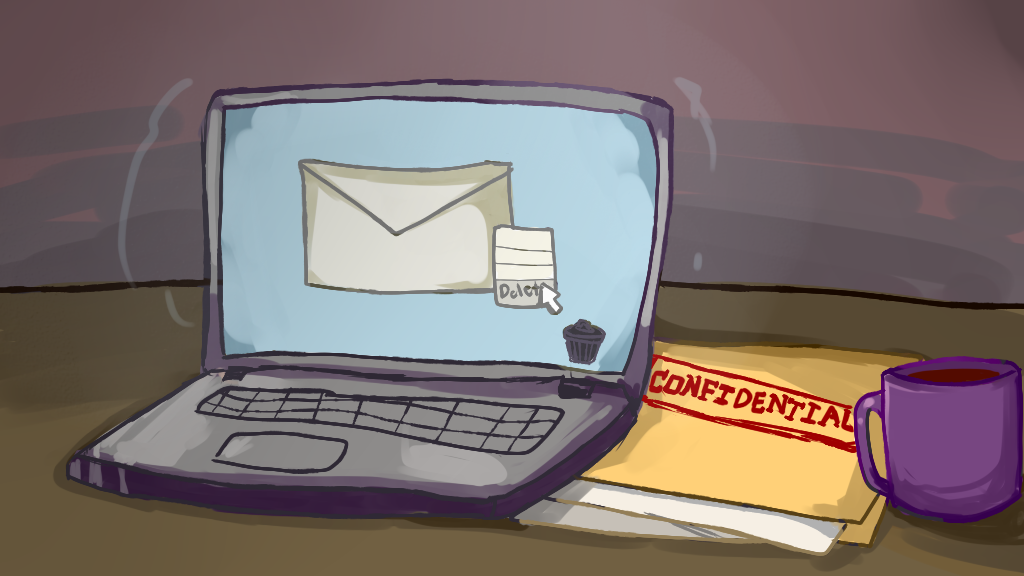NYS Ethics Reform: Politics Before Transparency
by Ryan Black | published Apr. 10th, 2015
For many New Yorkers, it's been hard to place trust in the state government in recent years. Politicians on both sides have faced federal charges pertaining to both lying and corruption. As
As many publications have noted, including Capital New York, the policy was first implemented by Cuomo in 2007 during his tenure as Attorney General. The issue did not get widespread attention even after the Times Union of Albany broke the story in June 2013 that the policy was to be extended by Cuomo to a much wider slate of state employees. According to a memorandum sent by Maggie Miller (New York state's chief information officer), the policy has only seen widespread implementation recently as a result of all state workers' emails being consolidated onto one cloud-based platform called Office 365.2.
Back in August of 2014, ProPublica uncovered a previously unpublished memo detailing the state's rationale behind such a policy. The memo states that having this policy in place cuts down on messages that are not pertinent to the State Archives, possible litigation or any request under the the Freedom of Information Law (FOIL). Supposedly, this is done to diminish the "enormous amounts of email data" that unnecessary messages create, but each employee is guaranteed 50 gigabytes of email storage, not to mention unlimited email archiving. Given state employees’ access to such a network, this hardly seems like ample justification.
Also concerning is the fact that individual employees are the ones tasked with deeming emails as worthy of retention or not. Having only 90 days is a severely limiting amount of time for the public and press to request access to certain information, so the fact that there is no oversight for which messages can be accessed on a later date is worrisome.
Even Attorney General Eric Schneiderman, according to aides of his referenced by The New York Times, has decided his office will stop following the 90 day deletion policy. In an email to his entire office, his Chief of Staff Micah Lasher expressed that he “is committed to openness, transparency and restoring the trust of New Yorkers in their government.” Despite this dissidence and the vocal dismay The New York Times attributes to many in the state legislature, Cuomo has yet to halt the automated deletion.
While this controversy has unfolded, Cuomo has been pushing hard against the state legislature for his own vision of change, even going as far as leveraging the state's budget and threatening a government shutdown. Political pressure is mounting for reform in the wake of federal investigators arresting and indicting former New York state Assembly Speaker Sheldon Silver in January for taking almost $4 million in bribes and kickbacks.
The nature of the reforms Cuomo has been pushing for — which the Assembly has recently agreed upon — pertain to public officials disclosing outside earned income, pension forfeiture for those convicted of public corruption,
Such clandestine proceedings are evident with the handling of the Moreland Commission, especially since as the Wall Street Journal notes, it did much of the groundwork leading up to the arrest of Silver. Despite this, it took Manhattan U.S. Attorney Preet Bharara and fellow federal prosecutors coming in on their own accord in order for the investigation to continue. In the wake of Silver's arrest and indictment, it makes one think that politics was a big reason the commission was disbanded prematurely.As The New York Times reported last year, the commission’s effectiveness was severely hindered by the governor’s administration pressuring investigators away from any group that could be politically toxic for Cuomo.
This recent incident only highlights the need for more accountability in the state government. The “ethic reforms” Cuomo put forward by could very well impede further exploitation from those meant to be public servants, but there needs to be more clarity and oversight for people to buy into this as real change. Rescinding this email policy would be a big first step in gaining back the public’s trust.



